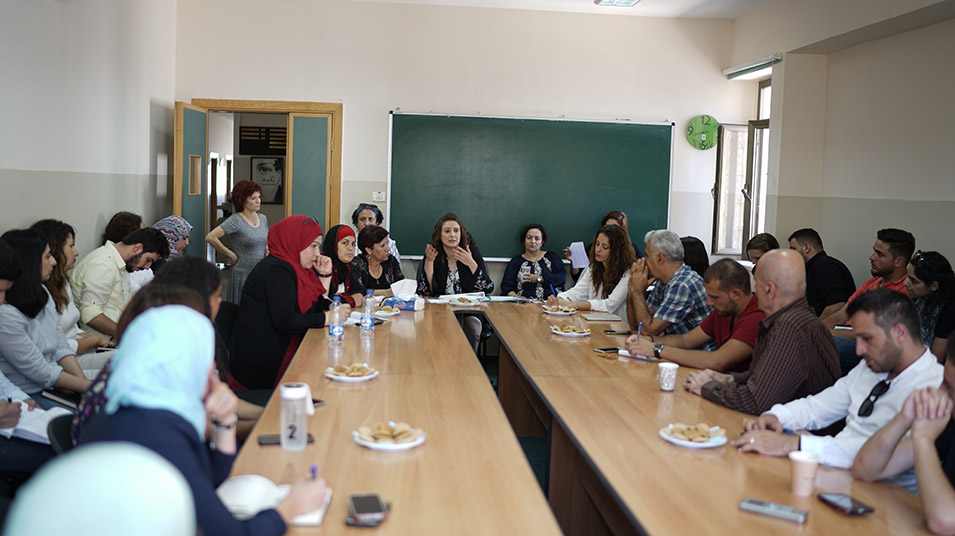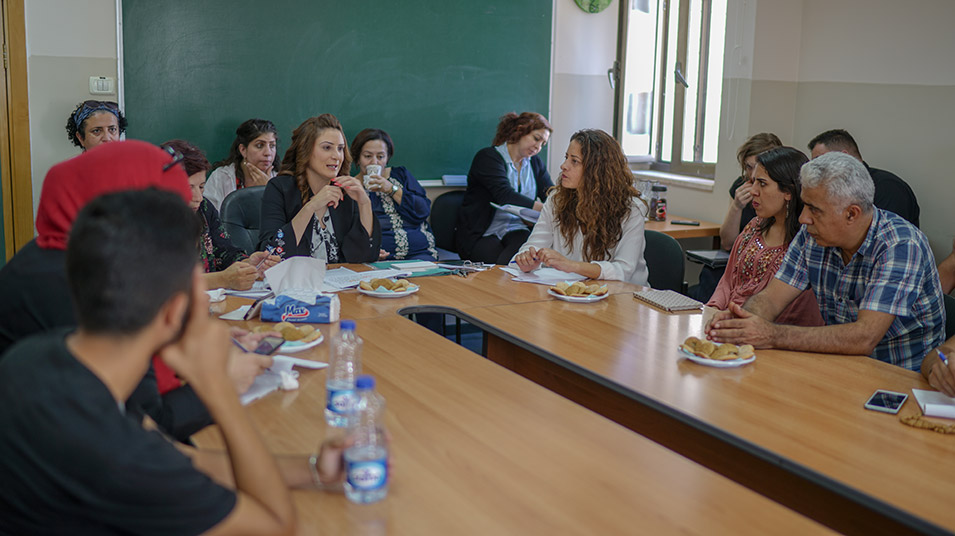Workshop on Palestinian Women Workers in the Israeli Settlements
On September 22, 2018, the Institute of Women's Studies at Birzeit University organized a workshop to discuss Palestinian women working in Israeli settlements. The workshop featured the researcher Manar Younes and Iman Assaf.
Younes presented the results of her exploratory research on the reasons that drive Palestinian women to work in Israeli settlements especially in the Jordan Valley (Al-Aghwar), while Assaf provided her notes on the study’s findings.
In her welcoming remarks, Director of the Women's Studies Institute Dr. Lena Meari said, “We cannot tackle Palestinian women’s work in Israeli settlements without taking into account how the Palestinian economy, especially the agricultural sector, was historically affected by the Zionist Settler Colonial project in Palestine.” She added, "It is impossible to investigate the changes in the agricultural sector and work patterns without addressing the policies adopted after the Palestinian Authority had signed the Oslo Accord. The Post-Oslo era has been characterized by its neoliberal economic approach, and its neglect of the productive agricultural sector."
Meari noted that the purpose of this workshop is to "start discussion and research on issues related to political economy, such as topics on class and gender.” She pointed that the workshop was an attempt to understand the physical structures and the labor division based on gender. “The way we tackle these issues, has to shy away from the prevailing gender discourse in Palestine that focuses on cultural dimensions, and separates it from the economic structures, and the role of colonialism."
Younes presented the most important results of her study, entitled "Palestinian women working in Israeli settlements: Motives, working conditions and alternatives," and highlighted the methodology she used. The research discussed the working conditions of female workers in the Israeli settlements and the problems, which they face. According to Younes, the study aims to uncover this phenomenon and its real motives in order to reach solutions, policies and recommendations to deal with this phenomenon.
Commenting on the study, Assaf stressed that it is impossible to discuss the economic situation of Palestinian women without taking into account the colonial context in Palestine. Assaf said that inequality that the Palestinian women encounter is a significant cause of injustice. This inequality exists within the context of settler colonialism. Injustice is more pronounced in Al-Aghwar. Assaf considered solutions such as establishing large investment projects in the Palestinian Authority areas problematic, because the economic policies of the Palestinian Authority, represented by market economy practices, have essentially destroyed important productive sectors, such as agriculture and industry.
Manar Younis attained her master’s degree in Planning and Political Development, and is currently working at the International Relations Department in the Palestinian Liberation Organization (PLO). On the other hand, Eman Assaf is currently preparing her master’s thesis in gender and development, where studies the impact of working in the agriculture sector on women who get irregular wages. Assaf also works at the Gender Unit in the Ministry of Labor.








